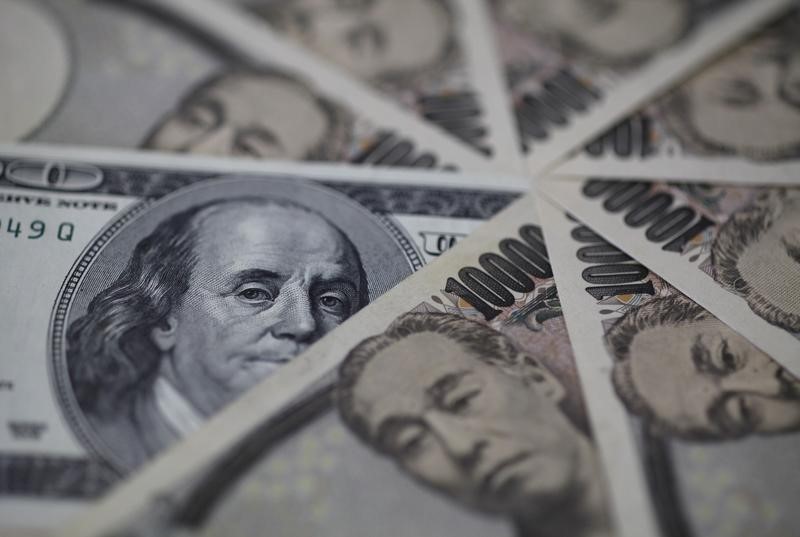Investing.com - The dollar rebounded against the yen on Tuesday, recovering from steep losses in the previous session, but concerns over the impact of slowing growth in China on the global economy continued to cloud market sentiment.
USD/JPY was last up 0.61% to 119.13, recovering from Monday’s lows of 116.81. The pair ended that session down 2.9%, the largest one-day decline in five years.
The dollar found some support as Japanese stocks regained ground in early trade, dampening demand for the yen.
The dollar fell sharply against the other major currencies in the previous two sessions as a broad based selloff in global equity and commodity markets saw investors scale back expectations for a September rate hike by the Federal Reserve.
The U.S. dollar index, which measures the greenback’s strength against a trade-weighted basket of six major currencies, was last up 0.26% to 93.62, off Monday’s eight-month lows of 92.52.
But concerns over whether a free fall in China’s stocks will make the world’s second-largest economy weaker persisted. Shares in Shanghai fell around 7% on Tuesday, one day after the worst trading session since 2007, dubbed ‘Black Monday’.
The turmoil in markets began when China unexpectedly devalued the yuan on August 11, sparking fears that the economy may be in a worse condition than previously thought.
The move by China has also contributed to the recent rout in oil prices. On Monday U.S. crude fell below $40 a barrel to the lowest level since February 2009.
Japanese Finance Minister Taro Aso said on Tuesday he hoped Beijing would take action to stabilize its economy and added that the government had no immediate plans to implement fresh economic stimulus measures.
Meanwhile, the dollar was also higher against the euro, with EUR/USD down 0.66% to 1.1544, after rising as high as 1.1713 on Monday.
The single currency has been boosted as investors fled to the relative safe-haven currencies amid intense volatility in markets.
Demand for the euro has also been boosted by investors borrowing the low-yielding currency to fund investment in risk assets, known as ‘carry trade’.
